About the RED/FERNZ registries
The registries are called the RED (Rare Endocrine Disorders) and FERNZ (Familial Endocrine Disorders).
These endocrine conditions are rare but can have significant effects on both quality and length of life. In NZ, we each have a unique national health index (NHI) number so NZ is well-placed to provide good quality epidemiological data on these conditions, including ethnic differences in diagnosis, treatment and outcomes. We currently have no definitive data as to the prevalence of Acromegaly, Cushing’s disease, or inherited endocrine syndromes in NZ but the predicted number of New Zealanders affected by these disorders is likely to exceed 3000 based on international data. The more people that join the registry, the more information researchers have on those with these rare disorders & participants with familial endocrine disorders. This may lead to improvements in the treatment and management of people with these disorders, both in New Zealand and overseas.
What is a registry?
A Registry is a type of database that contains details about people with a certain group of conditions. It may include research relevant information such as your medical history and blood test results. We will keep your medical information anonymous to any third parties, unless you approve of them using it for ethically-approved research first. The more people that join the registry, the more information researchers have on those with these rare disorders & participants with familial endocrine disorders. This may lead to improvements in the treatment and management of people with these disorders, both in New Zealand and overseas.
About the registry
Current medical treatment and management is based on international best medical practice for people with rare endocrine disorders. However, little is currently known about the people in New Zealand who live with these disorders. This registry will secure identifying data and keep your information anonymous. We will use this anonymous information to look at the characteristics of the NZ population compared to international data. We also provide opportunities for participants to be invited to ethically-approved clinical research if they are eligible. By joining the registry, you can help us make ensure that the future care and treatment options are optimised for others like you.
How does a registry work?
1. To join the Registry, you must have a diagnosis of a rare endocrine disorder including Acromegaly or Cushing’s syndrome
2. Send a referral form through your Doctor, a support person or directly to us
3. Once referred, you will receive more information, and we will ask you to complete a consent form before adding you to the Registry
4. We’ll then send you a baseline questionnaire and an annual survey to update us on your disorder and contact details
5. If you are eligible to participate in clinical research, we’ll contact you with more details
Who is eligible to join?
RED: Acromegaly, Addison’s Disease Cushing syndrome
FERNZ: Those with a genetic or clinical diagnosis of the following familial endocrine disorders are invited to join the Registry:
- Multiple Endocrine Neoplasia Type 1 (MEN1)
- Multiple Endocrine Neoplasia Type 2a (MEN2a)
- Multiple Endocrine Neoplasia Type 2b/3 (MEN2b/3)
- Multiple Endocrine Neoplasia Type 4 (MEN4)
- Familial Medullary Thyroid Cancer (FMTC)
- Familial Isolated hyperparathyroidism (FIH)
- Familial hypocalciuric hypercalcaemia (FHH)
- Familial Isolated Pituitary Adenoma (FIPA)
- Von-Hippel Lindau (VHL)
- McCune Albright (MCA)
- Carney Complex
- If the diagnosis your doctor has given you and your family is not included on here and you think it should be, please contact the Registry.
Contact details
Endocrinologists involved:
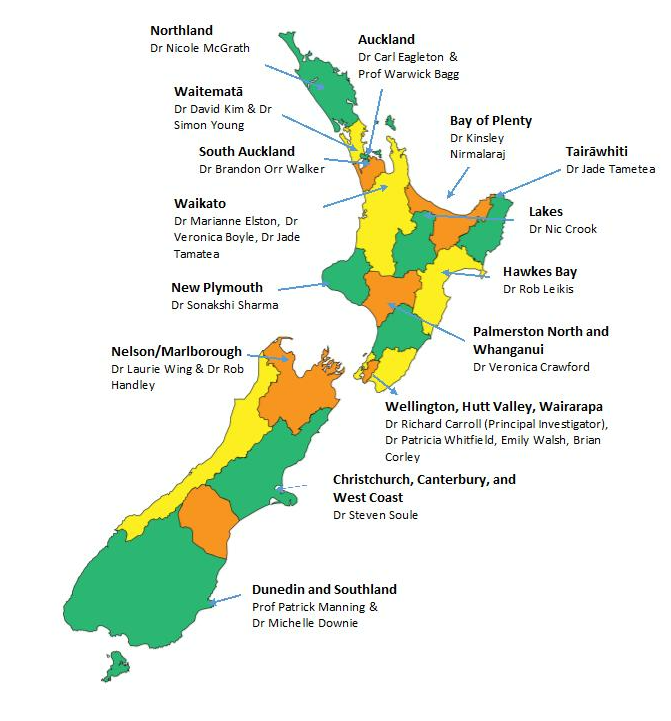
Primary Investigator: Dr Richard Carroll
Registry Nurse: Emily Walsh
Email: redregistry@ccdhb.org.nz or RES-FERNZRegistry@ccdhb.org.nz
The RED/FERNZ Governance Group
-
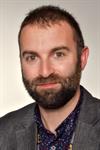
Richard is an endocrinologist working at Wellington, Hutt Valley, and Masterton Hospitals and completed his Endocrinology training in Wellington and London. He is the current chair of the NZ Endocrinology training committee and a clinical representative on the New Zealand Society of Endocrinology committee. His clinical interests include endocrine tumours of the pituitary, adrenal gland, and gastrointestinal tract, familial endocrine disease syndromes, and general endocrinology. His research interests include the genetic causes of parathyroid disease, management of inherited and rare endocrine disorders, and adrenal gland dysfunction.
-
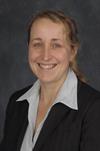
Marianne Elston, MB ChB, FRACP, PhD, obtained her MBChB with distinction from the University of Otago and completed her Endocrinology training in Auckland and Waikato Hospitals. She then worked in Professor Bruce Robinson’s Cancer Genetics Laboratory at the Kolling Institute of Medical Research, Royal North Shore Hospital in Sydney where she undertook a PhD investigating the molecular basis of pituitary adenomas. Her interests include pituitary, adrenal and thyroid disease. Dr Elston is currently Head of Endocrinology, Waikato Hospital and Senior Lecturer with the University of Auckland.
-

Carl Eagleton is an experienced Auckland trained endocrinologist & specialist physician working at Mercy Specialist Centre, Auckland and Greenlane Hospitals. Carl is the Lead Clinician in the Endocrinology Department at Greenlane Clinical Centre and prior to this was the Director of Medicine at Middlemore Hospital and former Head of Department for Endocrinology & Diabetes at Wellington Hospital.
In 2019 he was awarded the Obstetric Medicine Certificate by the Society of Obstetric Medicine of Australia and New Zealand. Carl has a broad experience in internal medicine including the management of patients with multiple medical co-morbidities. In addition to his appointments in New Zealand he has been a visiting medical specialist across the Pacific.
-

Jade (Ngāti Maniapoto, Ngāti Kahungunu) works both clinically as an Endocrinologist at the Waikato District Health Board and as a Senior Lecturer with Te Kupenga Hauora Māori, University of Auckland. Her appointment gives her an avenue to continue her research, while also helping to develop the next generation of Māori clinicians. She is the co-ordinator of the Māori health curriculum for the clinical years (MBChB 4-6).
Jade’s passion is Māori health and sees critique of the health system’s processes as important. She has developed her skills as a researcher, with a PhD through The University of Auckland looking at the impact thyrotoxicosis on Māori. Her research interests include investigating ethnic inequalities in health using a Kaupapa Māori Research framework in order to eliminate existing disparities. She has a particular focus on reviewing inequities through a lens of assessing the role a healthcare system plays in perpetuating inequities.
She grew up in the Waikato before studying medicine at The University of Auckland. Having returned to the Waikato, Jade now balances this with her love of clinical care with her drive for equity in both of her roles. She thrives and remains grounded (most of the time) with the support of her wider whānau/family, her supportive husband and their two tamariki ataahua/ beautiful children.
-

Dr Steve Soule is a Consultant Endocrinologist and Specialist Physician working at Christchurch Hospital. He graduated from the University of Cape Town where he did his specialist training, then moved to the UK for further endocrinology experience. He moved to New Zealand in 2002 and spends his time seeing patients with a broad range of endocrine and medical conditions, teaching medical students and endocrinology trainees and engaging in clinical research.
-

Patrick Manning is the Clinical Director of Endocrinology at Southern District Health Board based at Dunedin Hospital. He is also a Clinical Professor of Medicine at the University School of Medicine. His main areas of research interest are in the area of obesity and insulin resistance. He has published over 100 papers in peer reviewed journals. He is currently also Deputy Chair of the Clinical Leadership Group responsible for the new Dunedin Hospital rebuild.
-
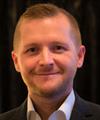
Simon Harper is a Consultant Endocrine & General Surgeon practicing in Wellington since 2015. Simon trained initially in the UK but moved to New Zealand in 2005 where he completed his higher surgical training. He completed a fellowship in Endocrine Surgery in Sheffield, UK. Simon is the Clinical Lead of the Wellington region Thyroid Cancer MDM. He has a strong commitment to surgical education and is a member of ANZES and IAES.
-
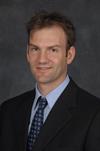
Win Meyer-Rochow, MB ChB, FRACS, PhD, obtained his MBChB from the University of Otago and completed his general and endocrine surgical training in Auckland and Waikato Hospitals. He undertook an endocrine surgical fellowship at Royal North shore Hospital, Sydney, Australia and completed his PhD in the molecular basis of phaeochromocytoma and paraganglioma at the University of Sydney. His interests include adrenal, thyroid and parathyroid disease. Mr Meyer-Rochow is currently Head of General Surgery, Waikato Hospital, Senior Lecturer with the University of Auckland, deputy chair of Australia and New Zealand Endocrine Surgeons Society and committee member of the Australasian Thyroid Cancer Registry
-
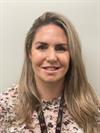
Emily was awarded an HRC Grant in December 2020 to work on the RED & FERNZ Registries. Her background is in Diabetes, Endocrine and Obesity research based in CEDOR at Wellington Hospital working on both international pharmaceutical trials & local therapeutic trials. In December 2021 she will have a clinical component in the Endocrine Unit at Wellington Hospital as the Specialty Clinical Nurse.
-
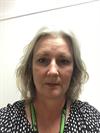
I initially began my Registered nursing career as a medical and oncology nurse at Waikato Hospital many years ago. During this time I discovered a passion for Endocrinology. Endocrinology is a very complex and fascinating speciality that I have never tired of! It encompasses clinical practice, research, and education. As one of only two Endocrine Clinical Nurse Specialists in New Zealand, I am fortunate to practice within the adult Endocrine service at Waikato Hospital. I support several patient advocacy groups, including Unicorn Foundation New Zealand and NZ Acromegaly Society. Additionally I am undertaking postgraduate study which is enabling me to further develop my practice and help deliver the best care I can to our patients. RED and FERNZ Registries offer an amazing opportunity to collate and evaluate data, and in turn provide evidence for future delivery of care for New Zealanders living with a variety endocrine disorders.
-

Richman Wee’s work in the past two decades has primarily centred on ethico-legal, regulatory and public policy issues involving human health and research, and is now extending to data law. He has been covering the waterfront of legal, ethical and policy issues relating to medico- and cyber-technologies, and has been engaged in a suite of roles from policy advisor, to academic researcher, research management and ethics, and research funding advisor. He is currently based at Te Piringa - Faculty of Law, Waikato University, for the Law Foundation (NZLF) Technology in Legal Education for New Zealand Project that involves all law faculties/schools in NZ. He was involved with the pioneering NZLF’s cyber and data initiative, as Project Manager for the Information Law and Policy Project. He was also a researcher and project manager for the NZLF’s multidisciplinary and international Human Genome Research Project: Law, Ethics and Policy for the Future. He served as the first Policy Advisor to the Health Research Council of NZ. For 2021, Richman is also teaching the health research ethics paper, CLNR402, at Victoria University of Wellington .
-

Jeroen Douwes is Professor of Public Health and Director of the Research Centre for Hauora and Health at Massey University. Prior to moving to New Zealand in 1998 he obtained his MSc and PhD in environmental epidemiology from Wageningen University, The Netherlands. Professor Douwes leads a comprehensive programme of public health and epidemiology research with a focus on chronic conditions, including respiratory disease and environmental, occupational and planetary health. Since completing his PhD in 1998 he has published 190+ peer reviewed Journal articles. He has a Scopus H-index of 54 (and a Google Scholar H-index of 62). Professor Douwes is Associate Editor of the International Journal of Epidemiology and Community Health, and Frontiers in Public Health – Life-Course Epidemiology and serves on the Editorial Boards of Indoor Air, and Environmental Health. He also serves on the Boards of the Health Research Council (HRC) and the New Zealand Environmental Protection Authority (EPA). He is the Chair of the HRC’s Public Health Research Committee.
-

Miles is a Senior Scientist within the Human Genomics group at ESR with extensive experience in computational genomics and bioinformatics. He completed a PostDoc at Queensland University of Technology (Brisbane, Australia) working on the development of methods to deal with ever expanding genomic data sets and their access and interpretation back to the people that matter (i.e. clients, clinicians, researchers, public, etc). Part of his role at ESR has been implementing bioinformatics workflows in both research and clinical settings. Miles was recently appointed to the Genomics Aoteoroa Bioinformatics Leadership Team, where he is responsible for overseeing bioinformatics support for human health projects across the country. He is also heavily involved in the Data Carpentries as an instructor and facilitator, and is also a mentor on ESR’s data science accelerator programme. He is deeply committed to making data science and it’s tools accessible, with the belief that everyone should be able to access, interact with and interpret their data.
-

Kia ora! I’m William, a 4th year medical student at the University of Otago, currently studying at the Wellington campus. I began working on the NZ RED project as a summer student at Waikato DHB in 2020, and have been working on it part time since then. I also enjoy working as the Rural Student Representative for the Wellington Health Professional Students’ Association, and as a youth advocate for the New Zealand Brain Tumour Trust. Outside of university, I spend my time playing tennis, drinking coffee, and hanging out my friends and flatmates.
-

Dr Patricia Whitfield is an adult Endocrinologist at Te Whatu Ora, Capital, Coast and Hutt Valley, and a research fellow and Clinical Senior Lecturer at the University of Otago, Wellington Campus. After completing her medical degree at the University of Auckland, she moved to the Wellington Region to complete her Endocrinology training. Whilst a general endocrinologist, Patricia has a special interest in the area of Young Adult Diabetes, undertaking MDT clinics and YAD specific research at Wellington and Kenepuru Hospitals. In addition to her clinical work, she was awarded a Health Research Council Clinical Research Training Fellowship to undertake her PhD at the University of Otago, which she will complete in 2024. Her thesis examines ethnic differences in glucose metabolism in New Zealanders, with specific emphasis on body composition and genetic predictors of Type 2 diabetes.